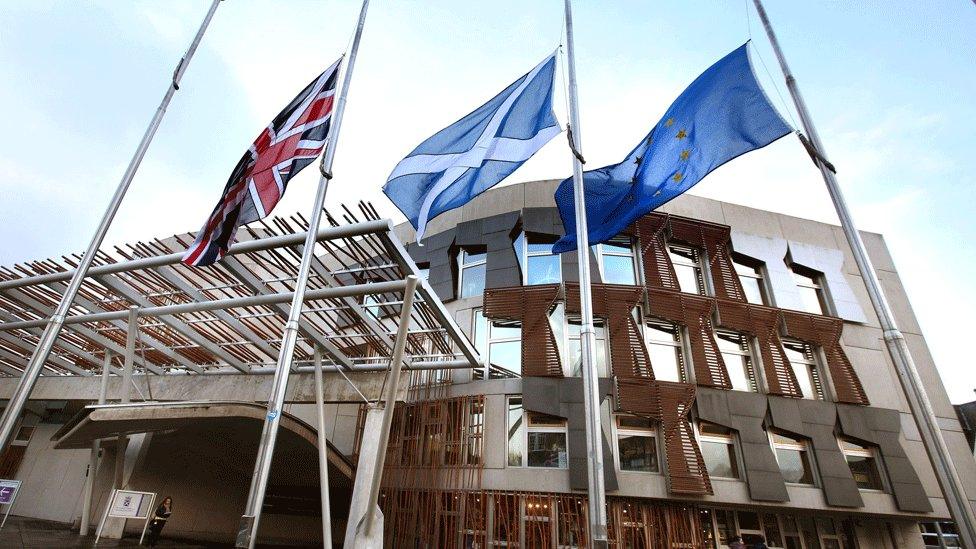Law, politics and Scotland's Brexit continuity bill
- Published
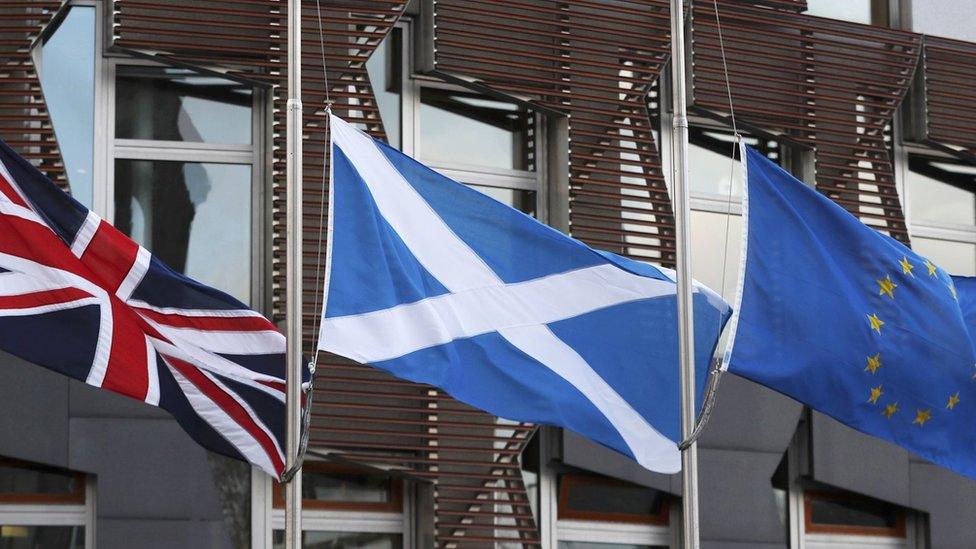
When framing the law, one must consider legal matters. When governing the people, one must also consider matters of wider policy. In short, politics.
Both aspects are salient in the latest round of bargaining anent Brexit and the associated devolved powers.
You will recall that the controversy concerns 111 powers - such as agriculture and the environment - which are devolved to Scotland within the UK but are presently run in part by the European Union.
You will recall that the UK government originally said that, post Brexit, these powers should all revert to London, initially, for subsequent distribution following consultation.
You will recall that the Scottish government replied bluntly: "Aye. Right." You will recall that the devolved government in Wales said much the same. In Welsh. Northern Ireland governance is currently silent on these and other matters.
Now the Scottish government has published plans for a "continuity bill". This would, in effect, transpose the 111 powers into Scots Law in the event that there is no agreement on a UK-wide repatriation and redistribution.
So where are we? Firstly, let me repeat a point I have made frequently - which is readily endorsed by Mike Russell, the Scottish Minister for Mitigating Brexit. And, indeed, by the first minister.
Holyrood has no veto over the EU Withdrawal Bill, presently before the UK Parliament at Westminster.
Thus, Holyrood cannot thwart the EU Bill. Holyrood cannot block Brexit. To be fair, Mr Russell - and Ms Sturgeon - never pretended that they could.
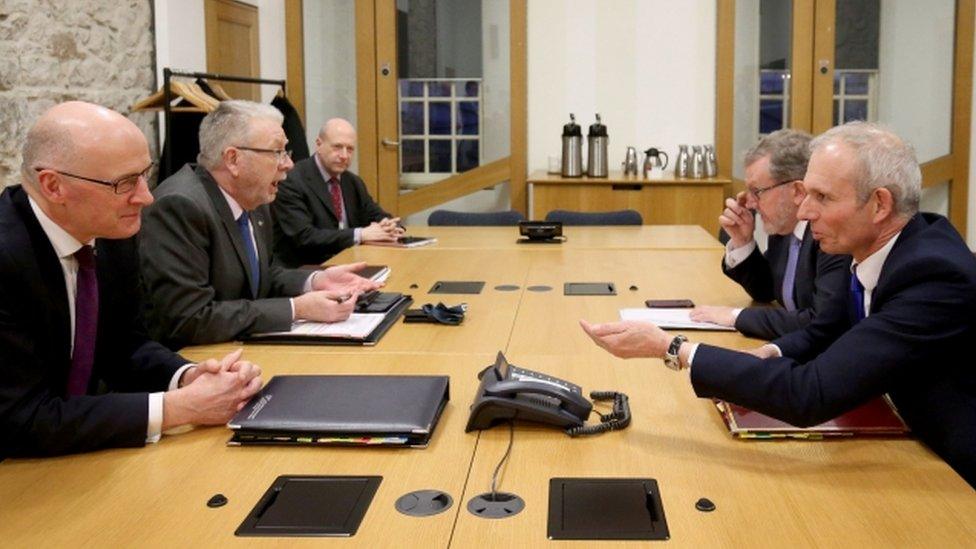
Talks between the two sides earlier this month ended without any deal being agreed
So much is a matter of constitutional law. Westminster remains sovereign. Lest there were any doubts, the UK Supreme Court pronounced on this issue, in another context.
The Court reflected upon the convention (formerly known as Sewel) which provided that Westminster would not normally legislate in devolved areas without Holyrood consent.
This convention was subsequently featured in statute. However, their lordships were unimpressed. They said that the convention remained just that: a convention. It did not have sufficient force to trump the sovereignty of Westminster.
So, if it is content, the UK Parliament can pass the EU Withdrawal Bill, regardless of the views of the Scottish Parliament.
At which point, a decision would arise. The Commons and Lords, again if they are agreed, could decide to leave out of the Withdrawal Bill those elements which apply to devolved matters, if Scotland continued to object.
Or, to repeat, Westminster could legislate for the entire statute, reserved and devolved. It is their call. Solely their call.
Which is, of course, where the politics comes in. UK ministers are in enough trouble over Brexit without picking a fight with Holyrood. They want to cut a deal.
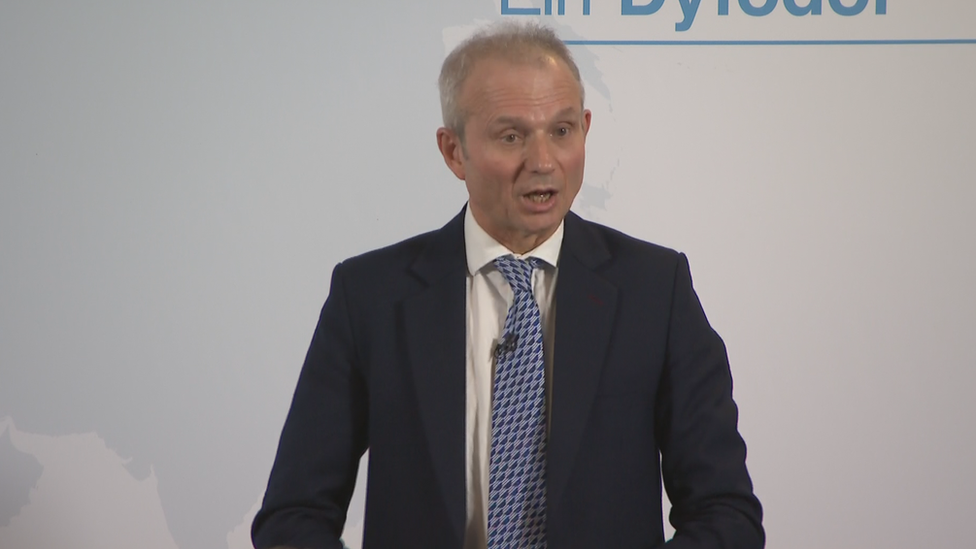
David Lidington delivered a speech about Brexit in Wales
Yesterday David Lidington, the Cabinet Office minister, argued that such a deal was available in the shape of the latest UKG offer.
This is that the majority of the 111 powers would go straight to Holyrood - and that this would feature in a revised Clause 11 of the Withdrawal Bill. Except...that certain powers would be retained by London initially in order to provide for UK frameworks.
As an exemplar, one only needs to look at the consultation on farm payments post Brexit published today by the Department for Environment, Food and Rural Affairs, Defra.
To be clear, the consultation concerns farm payments in England - because that is the limit of Defra's rural remit. But there is a chapter posited on the presumption that there will be a UK framework - while stressing that negotiations on this matter are continuing.
I understand that the Scottish government is deeply unhappy with the Defra paper for two reasons. One, they do not like that presumption. They wanted the lack of consent to be signalled more clearly.
Two, they do not like the English policy and would not want it replicated in Scotland. They say the proposed farm payments system would not sit well with Scottish agriculture, particularly hill farms and crofts.
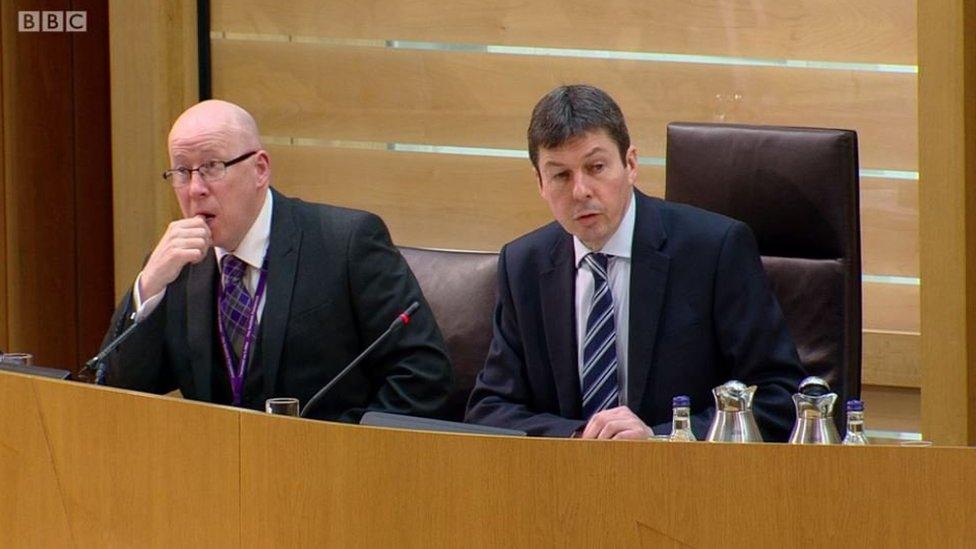
Holyrood Presiding Officer Ken Macintosh will have to decide if the continuity bill is relevant
But why the Continuity Bill? For two reasons. One, it is a backstop. It guarantees the continuity of EU law in devolved areas in the event that the EU Withdrawal Bill fails at the UK level - or contains a devolved gap - for whatever reason.
Two, politics. It is a visible, written reminder to Westminster and, perhaps particularly, to Whitehall that devolution is a reality and has to be addressed.
Another point re the continuity bill. The presiding officer, Ken Macintosh, has to offer guidance on whether the Bill falls within Holyrood's remit. Ministers are adamant that it does - and apparently have the support of the Lord Advocate in that regard.
So where are we re the wider issue of the 111 powers? The UKG is arguing for its offer. The SG is not currently content, sensing a power grab is still in the making. Again, to underline, a similar line is taken by the devolved government in Wales.
That indicates this is not purely a Nationalist issue. However, SNP ministers continue to face questions as to whether they are manoeuvring to create a constitutional crisis, from which they might derive gain for their cause of independence.
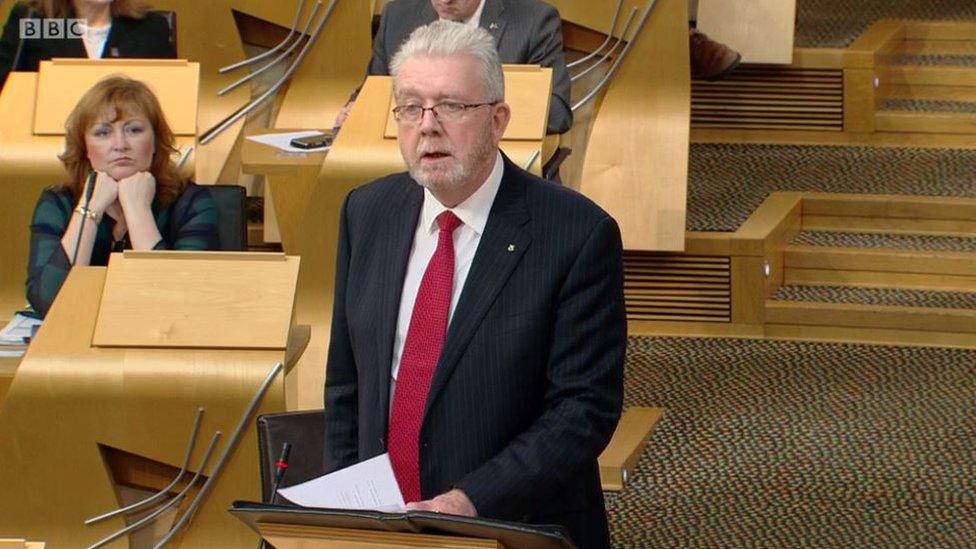
Mike Russell will address MSPs about Brexit on Tuesday afternoon
Now, it is not beyond the bounds of possibility that SNP ministers would juggle politically to benefit their side. Welcome to politics.
But SNP ministers insist this is not their intent on this occasion. They stress they remain opposed to Brexit - and will seek to retain the customs union and the single market as a minimum, where they can add their voice to such arguments.
But they also recognise that industrial, civic and rural Scotland wants reassurance that a cliff edge will be avoided with regard to legal provisions. It is, if you like, a duty. And they recognise that the most efficient way to do that, within the current constitution, is by agreement across the UK.
Secondly, Nicola Sturgeon has, quite deliberately, deferred the issue of independence and a referendum until the opaque, worrying uncertainty of Brexit has, perhaps, subsided a little. She does not want independence to be seen as a further element added to an already fretful constitutional mix.
Thirdly, is there sufficient public engagement with the 111 powers to make it a game changer on independence?
To be clear, these are vital powers, crucial to key sectors of the Scottish economy and society. But when you hear talk of doubts over food labelling, do you instantly think "to the barricades?"
Further concessions
Then there is the Scottish Conservative position, as distinct from the UK government stance. I was intrigued to note that the praise for Mr Lidington's speech was warm - but contained a caveat.
It said the speech was welcome - but noted the need for more discussions. Those are taking place today. At official level. And, in Holyrood, at cross-party political level.
I believe the Scots Tories are holding out for further concessions from the UK government. Tories in Scotland are, of course, intuitively suspicious of the SNP, and their motives.
However, it is my understanding that the Tories at Holyrood believe there has been substantive, engaged discussion with the Scottish government - and that a deal might still be close, despite the rhetoric on both sides.
The key, as ever, is wording. Scottish ministers need a firm, undisputed, written guarantee that they will be able to decide, in tandem with the UKG, how those cross-border frameworks are to proceed. Not that they will be simply consulted about a UK decision.
As I write, the search is on for suitable language. For language which satisfies the law and politics.
- Published27 February 2018
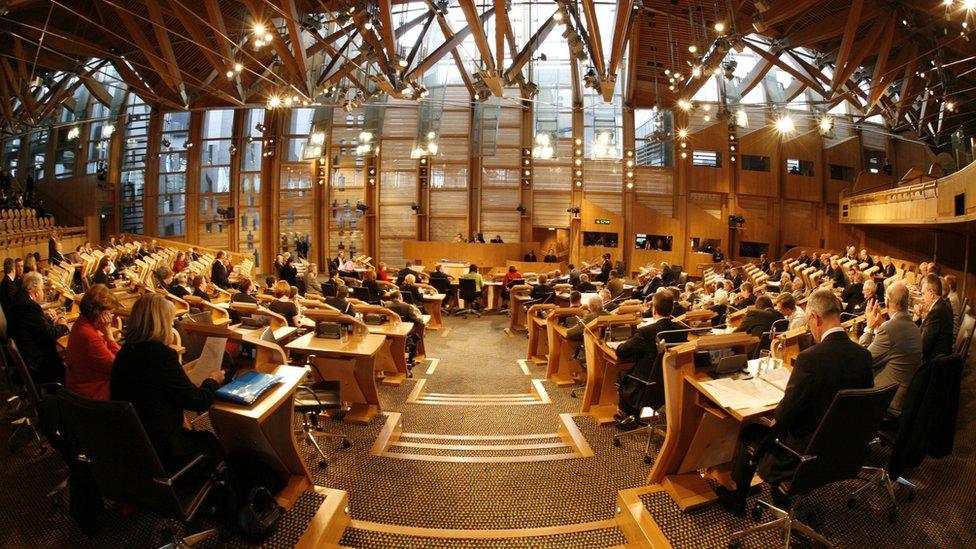
- Published27 February 2018
